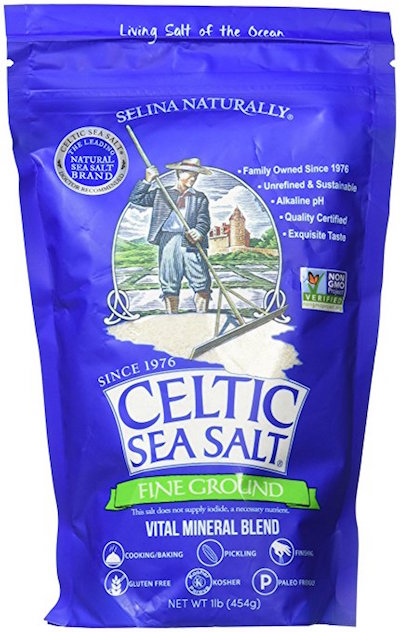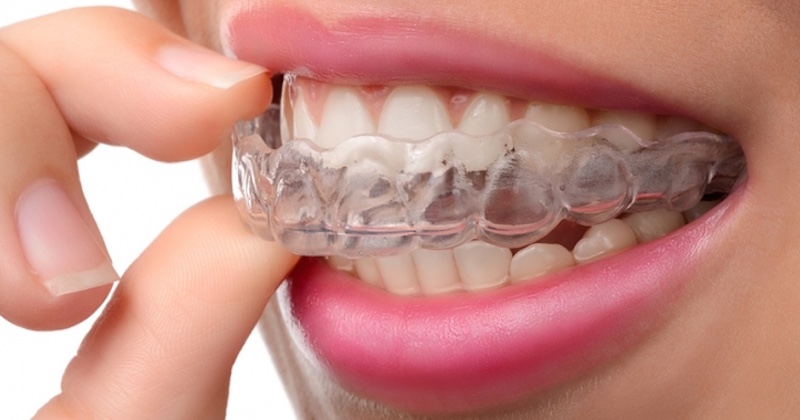Bruxism: How To Stop Teeth Grinding Naturally (It's Not Just Stress)
Last updated on
Grind your coffee beans, not your teeth. Here are some effective ways to stop teeth grinding you should use now.
Does teeth grinding awaken you in the middle of the night? Do you often have a headache because of frequent jaw clenching? Or a sore jaw in the morning from the grinding? If the answer is yes, you are among millions of people who struggle with the same problem.
Some people don’t know that they teeth-grind until their dentist tell them from the appearance of the wearing out of the teeth.
Though not a serious medical condition in itself, teeth grinding (bruxism) is far more common than you think. You are not alone.
When left untreated, teeth grinding can lead to complications such as stiff jaws, disrupted sleep, earache, headaches, and in more severe cases, changes in the appearance of the face.
In a 2005 study, 38% of parents reported that their children have problems with teeth grinding during sleep. In addition, it’s not only the children that have this problem, studies reveal nearly 8% of adults grind their teeth.
How To Stop Teeth Grinding Without Using A Drug
Teeth grinding can result due to a multitude of factors such as stress, anxiety, sleep disorders, and the use of certain medications. For these reasons, it is critically important to look at the underlying cause before starting a treatment.
Make Lifestyle Changes And Manage Your Stress
By the same token, you might also be able to get a relief by taking measures to control stress and anxiety. In addition, making certain lifestyle changes including reduced caffeine intake and avoiding alcohol consumption or drinking in moderation can help as well.
If you noticed that you have a habit of grinding teeth during stressful situations, then stress management may help you to stop teeth grinding. Look for a way to reduce stress and anxiety.
You could practice deep breathing or relaxation techniques to control your response to stressors. You may consider taking a walk in the park, and walking barefeet. Find an activity that best suits your lifestyle and stick to the routine.
Use Biofeedback Therapy
Biofeedback is a technique that is used to help a person gain more control over the involuntary functions. This technique can be helpful when teeth grinding has become your habit of venting aggression and overwhelming feelings.
Biofeedback uses an equipment to measure your heart rate, skin temperature, blood pressure, and muscle activity. Because an abnormal muscle activity in the jaws is one of the reasons for teeth grinding, biofeedback can help you regulate the jaw muscle activity and reduce the occurrence of teeth grinding during both sleep and wakefulness.
Improve On Your Sleep Quality
There is a close connection between sleep disorders like sleep apnea and teeth grinding. Therefore, make sure to get a sound sleep to help relieve the symptoms of teeth grinding.
It has been shown that treating sleep-related respiratory problems can actually improve many symptoms or eliminate the problem of teeth grinding during sleep.
If you a sleep problem such as insomnia, consider taking this 2-ingredient natural remedy, or get this tried and tested sleep tips to help improve your sleep and sleep quality. A visit to a chiropractor may even help you to relax more.
What Your Dentist Can Do For You
If you grind teeth because of misaligned, cracked, crooked or missing teeth, visit your dentist. A visit to your dentist can ensure an early detection of any damages caused by frequent teeth grinding.
They can suggest reconstructive dental treatments, such as overlays and crowns, which can eliminate the problem of grinding.
Splints and mouth guards are simple devices that prevent teeth damages by separating the teeth during grinding and clenching.
However, bear in mind that using a splint or a mouth guard are just temporary solutions. You will still need to treat the underlying problem, which may likely be nutritional deficiencies. Read on.
How To Stop Teeth Grinding Naturally
If you are, or have been on a long-term medication, you most likely have certain nutritional deficiencies as medications can deplete nutrients in your body.
Nutritional Deficiencies That May Cause Teeth Grinding
The most common deficiencies that may cause bruxism or teeth grinding are calcium, magnesium, and zinc. Deficiencies may be different for every individual, but it is worth including them in your diet for a time to see if it helps in your situation.
Plant-based foods are the best sources of most nutrients that you should eat more of, to reduce incidences of teeth grinding during sleep.
Milk is not your best source of calcium. If you wish to take a calcium supplement, be sure to take it with magnesium and for short-term.
Here’s a combination supplement of calcium, magnesium, zinc and even vitamin D3, one of the best in the market that is value for money: Nature Made Calcium Magnesium & Zinc.
Vegetables that are crunchy, nuts and seeds are your best bet. Here are some example of foods that are high in these nutrients that you can eat to stop teeth grinding.
- Celery
- Broccoli
- Cauliflower
- Bokchoy
- Carrots
- String beans
- Beansprouts
- Chia or hemp seeds
- Dried figs
- All nuts (except peanuts)
- Green juices
You get the idea!
Magnesium is needed in over 300 enzymatic functions in your body and is often deficient if you are not eating enough plant-based foods. See this list of magnesium-rich foods or, if you want to supplement, I recommend using Natural Calm.
Seasalt Water Therapy To Reduce Teeth Grinding
If you have never heard of seasalt water therapy, you may read more about it here.

Celtic seasalt or most natural unprocessed salt contain over 80 natural minerals that our body needs but often lack in the food we eat.
Find out how much water you need to drink daily. In every liter of water, add in ¼ teaspoon of seasalt or the natural salt of choice. Again, make sure they are damp and greyish in color, not dry, white (bleached) and powdery.
Drink your required amount of water daily with this amount of seasalt for at least 14 days to see any improvement to your teeth grinding. In the process, you may also experience many other existing symptoms reduced.
In any case, seasalt water therapy is safe to take for long-term, especially when you’re not eating foods that supply minerals sufficiently.
Herbs That Help Reduce Teeth Grinding
Valerian root and chamomile are two herbs that have been shown to improve the quality of sleep with no side effects.
Valerian root is used to help improve restless legs syndrome. Chamomile tea is great to help relax nerves and muscles for deep quality sleep. So it makes sense to use a combination of these herbs to help relax and to reduce teeth grinding.
Possibility Of A Parasite Infection
If after doing all the above and teeth grinding still persists, then definitely suspect a parasite issue.
Doing a gastrointestinal cleanse followed by a parasite cleanse most likely can help to eliminate the parasites if parasite is the cause. With these cleanses, you will most likely also reverse many other symptoms you might have, so why not do them anyway?
Some of the links I post on this site are affiliate links. If you go through them to make a purchase, I will earn a small commission (at no additional cost to you). However, note that I’m recommending these products because of their quality and that I have good experience using them, not because of the commission to be made.



































 JOIN OVER
JOIN OVER
Comments